John Reniewicki is now wrapping up his third year as an Under Armour athlete. Since turning pro (as an athlete and a coach) his running has continued to improve. Check out his progression thus far…
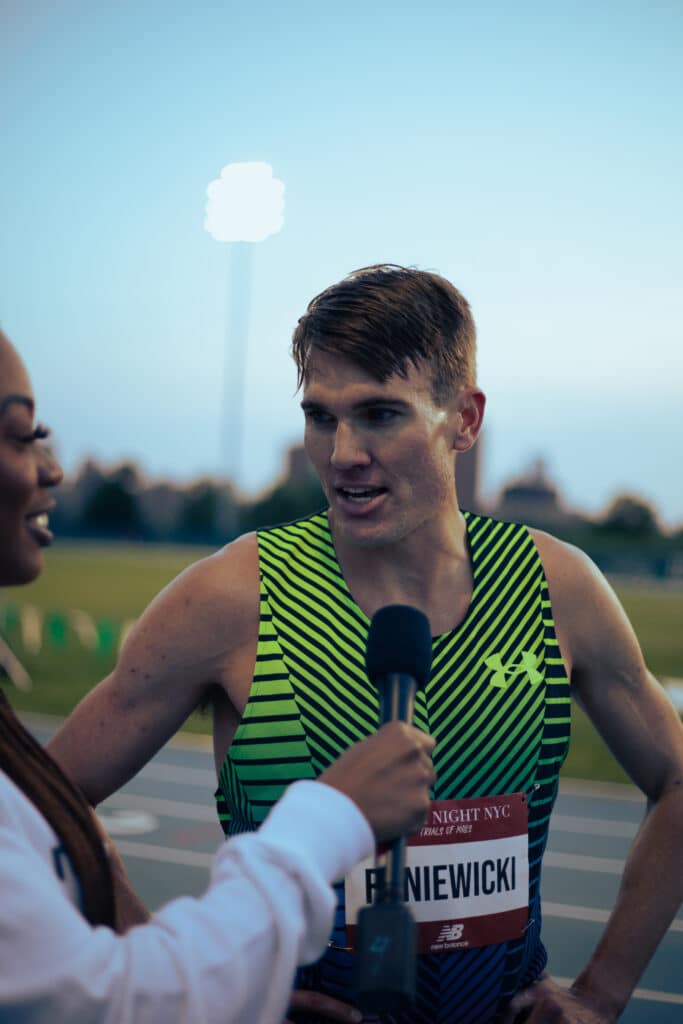
College PBs —> Current PBs
- 1,500m: 3:48.70 —> 3:36.02
- 5,000m: 13:55.9 —> 13:20.31
- 10,000m: 28:42 —> 28:15
When we last interviewed John (about a year ago) he was transitioning to live and train at Under Armour’s new facility in Baltimore. At that time he also launched his own private coaching business and is now one of the most popular coaching options on V.O2. Below we ask him about key difference makers in his training, what recovery looks like and how his journey as an athlete has helped his coaching.
How is living/training in Baltimore?
Both have been good! Coming from Arizona and Colorado, moving to an old east coast city was a huge change at first in both living and training, but we’ve got a great setup and we’re really enjoying it as a team. It definitely feels like home. I live just across the harbor from the Under Armour Campus. I usually take a quick boat ride across the water to get there from my side of town.
At campus we have our gym, the track and that’s where we have access to massage and physio. Two-hundred meters from my front door is a big park with good running, and there’s some nice trails just outside the city as well. My go to spot for a long run is called NCR trail, an old rail trail over 20 miles long with packed dirt.
My favorite part overall is how walkable the city is. After living on the west coast and always relying on driving to get anywhere it’s nice to be able to walk five minutes down the street to the store or to grab dinner out. What I miss most when I’m traveling for training camps or racing is not being able to just walk down the street for a coffee.
You’ve improved quite a bit since leaving college and turning pro. Can you tell us what some of the key difference makers have been?
For me the biggest thing has always been finding a plan that works to stay healthy and string together consistent work. The biggest changes to my training since college have come in the past 12 months. I’m on a 9-day cycle, where every 3rd day is quality work with lifting and speed development landing on the easy volume days between. With the extra time in between quality sessions and long runs I’m able to get more out of each session in both quality and quantity.
Also, in the past year I’ve been adding in easy volume running on our LEVER treadmill system, a way to take some of the pounding off my legs while still getting in the same volume. Lastly, something that I’ll always do but am able to refine a bit year-to-year, is cross training. I spend most of my time in the pool…probably 5 hours a week. My little brother, who’s a pretty elite junior swimmer, is kind enough to play swim coach for me on a regular basis.
What does training look like now and what are your big goals going into the 2024 season? How do you intend to continue to make progress and build on 2023?
Coming off of a big summer season and building back this fall I had a little bump in the road with my left leg. I luckily caught it pretty early and was able to avoid needing any major time off. A benefit of having so many injuries over the years is I know my body pretty well now and can catch stuff early.
Right now I’m up in Flagstaff, Arizona with my team for our winter training camp until early January. I’ve been working out for 2 weeks now and am about another week or two away from full running volume. I have a great coach (Cory Leslie) who I’ve been with for 6-years now and especially in times of building back I lean on him to keep me patient.
The focus from now until the Olympic Trials is staying healthy and keep checking off weeks of training. My team and I will race one cross country meet this fall, but other than that we’re getting in a long uninterrupted block before racing indoors starting in late January. The biggest thing I took from my past year is that as long as I’m focusing on the work and being consistent in my training the racing will come.
I’m lucky to have a great coach and team around me and am consistently given great opportunities to race. But with this said the goal is to be better. I have a great chance to run the A standard in the 5000m this spring with the plan we’re on right now, and I would love to have that going into the Trials this summer.
What is part of your recovery routine? Is there anything recreational runners can learn from pro athletes?
I don’t think I do anything that’s groundbreaking or fancy when it comes to recovery. And I think rec runners can take a lot from that in itself. Keep it simple and focus on getting the few things that are very important right before you worry about the million things that are minimally important. There’s a lot of noise in the world today and a million different people trying to sell you on a million different things. At the end of the day you can’t change the fact that the most important areas to focus on for recovery are nutrition and sleep. My recovery “routine” includes the following:
- Making sure I get in good food right after training
- Trying to take a nap or at least rest with my feet up for a little bit during the day
- Never skipping meals
- Sleeping 8.5-9 hours a night
- Taking a multivitamin daily
If you want to add in anything on top of good food and sleep to your recovery routine I would recommend booking a good sports massage every now and then during training to stay on top of soreness.
Looking back on your career, how would you guide a young athlete who wants to dedicate themselves to running in college and maybe even post-collegiately?
This question is great because these are the same things that I tell my little brother who’s in this same place right now. Granted he is a swimmer not a runner, but the message is the same. There’s a lot to say here but here are three:
- Don’t compare yourself to others – especially in high school your peers are maturing at different ages, there’s no benefit. Focus on yourself and your work.
- You can have everything you want – but you have to know exactly what it is that you want and be willing to go all in. Define success for yourself.
- Enjoy it – it’s not so serious, it’s just running.
What type of athletes do you coach and tell us a little bit about how they’ve progressed and why?
I have such a great group right now. I’ll start with Grant and Nathan, my guys in California training for the college track season. I’ve been working with Nathan since he left high school and he’s running his threshold 2mi reps right now at about as fast as he was racing the 3200m in high school a couple years ago. He’s on the path for a fast 5000m this spring. Grant is in his first year of college and we’re getting excited for some 1500s this spring.
Shea and Elizabeth were my NYC crew this year, both running their first marathon. When Shea and I first spoke this past summer he wanted to break 4:00, with 3:45 as a stretch goal – he finished in 3:35. And it was good he was 10 minutes under because Elizabeth was only 8-minutes back in 3:43.
I’ve got a few in Europe – Joakim in Sweden who started with me as a 2:10 800m runner a few years ago and this past spring broke 2:00 for the first time running 1:58. We’re now having some fun and getting ready for his first triathlon next year. There’s Valerie who I’ve been working with for a few years now in Switzerland, she’s building up to another Boston Marathon this spring targeting another PB.
Finally two more guys I have to mention who I’ve been lucky to work with for the past couple years – Mike in Indiana, the U.S. Master’s 1500m champ indoors last year. We are targeting some longer stuff right now before getting back on the track. And John in Washington DC, a collegiate swimmer turned marathoner who’s coming off a 3:34 marathon PB in Columbus.
How has your journey as an athlete helped your coaching?
I think the tougher your journey as an athlete the better equipped you are to help others. My college career was ugly, at best. I spent more time injured than healthy, and when I was healthy and racing I failed often. But, if you’re paying attention you can learn something each time you fail. And I like to think I was paying attention.
I get the same amount of enjoyment seeing my athletes accomplish a goal as I do in my own career. And I get excited about working with people who want to get better no matter what level they’re at. Whether you’ve never run a step in your life and want to run a 5k, or you want to qualify for the Olympic Trials.
John Reniewicki is a professional runner for Under Armour and coach on V.O2. Connect with him via his coaching profile here.
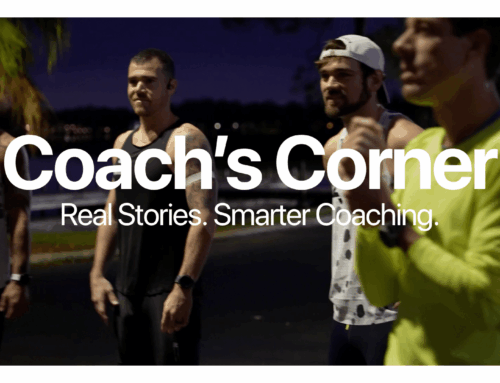
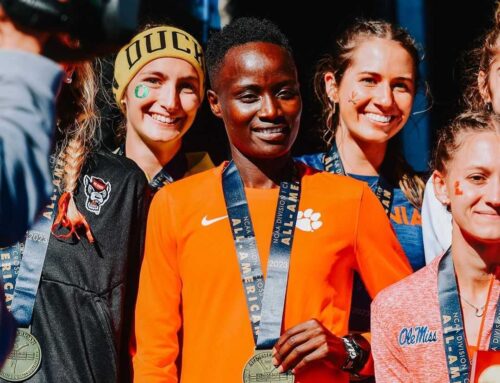
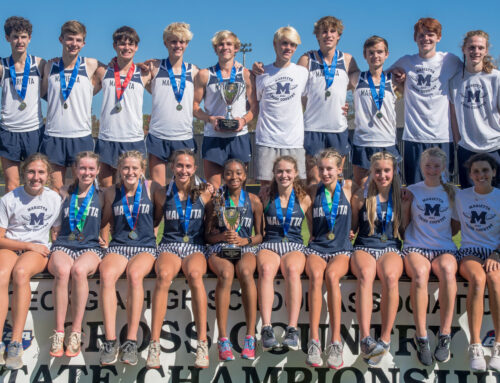
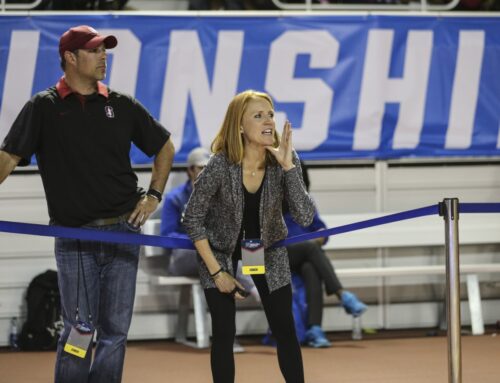
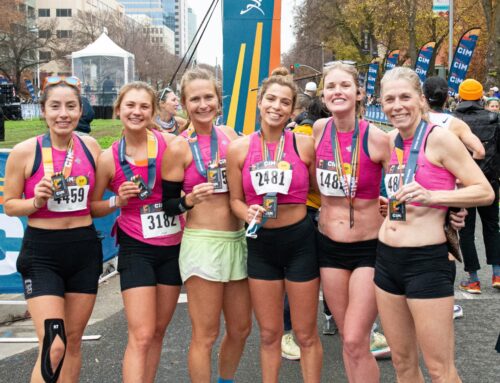
Leave A Comment